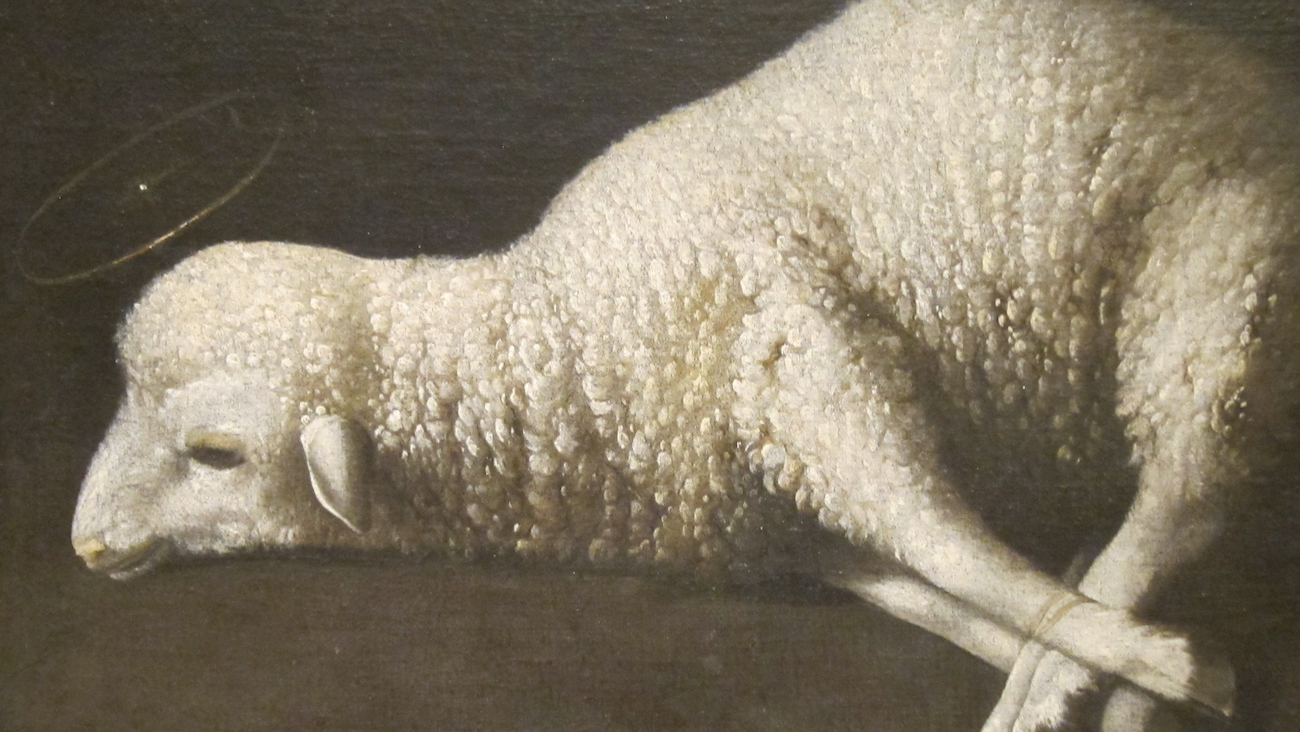Once there was a little girl named Marcie who had a very strange and unusual reaction to Christmas: she didn’t like to receive Christmas presents. Every year when it was time to unwrap the presents under the tree, she would go to her room and wait there until all the gifts were unwrapped and set aside. For example, one year Santa Claus brought her a doll buggy and a talking baby doll that said “I love you” whenever someone squeezed it. Marcie wouldn’t even pick it up; she just left it lying there under the tree. It’s not like Marcie was a little Scrooge who went around saying “Bah, humbug!” or anything like that; she just ignored Christmas as much as possible.
Everyone in the family was getting rather tired of her attitude, so one Christmas, after dinner, her grandmother sat down, invited Marcie to climb up on her lap, and then asked, “Now, dear, tell me why you don’t like to get presents.” Marcie didn’t want to say anything, but finally admitted in a low voice, “Because I’m not good enough.” “What!” said the surprised grandmother. “Whatever made you think something like that?” “Well,” Marcie explained, “people are always telling me to be good so Santa will come. But, Grandma, as hard as I try, I can’t always be good—so I don’t deserve any presents.” The grandmother smiled, gave girl a big hug, and then told her something she would always remember: “Marcie, people don’t give you presents because you’ve earned them. They give you presents because they love you. We all love you, Marcie, and we would give you presents no matter how good or bad you might have been.” The expression on Marcie’s face became one of surprise and delight; she smiled, hugged, and kissed her grandmother, and then went and picked up the baby doll, and hugged it, too (John Sumwalt, Lectionary Stories, B, p. 24). John the Baptist told people God was sending a Messiah, or Savior—not because they deserved one, but because He loved them. Like Marcie’s grandmother, we can help prepare the Lord’s way by telling others of God’s love.
As we prepare to enter the final stage of Advent, we’re reminded of the importance of recognizing God’s gifts and responding to them with a grateful spirit. In the first part of the reading from Isaiah (61:1-2, 10-11), the prophet announces that he has been chosen by God and sent to proclaim wonderful news to the poor, the broken-hearted, and the captives, announcing a time of favor and blessing from the Lord. The second part of the reading describes the response of the city of Jerusalem itself, as representative of the people: gratitude, rejoicing, and a sense of awe. Truly recognizing and accepting God’s gifts brings a genuine and lasting sense of freedom and peace. It is possible, however, to let our personal biases or agendas interfere with this; that’s why St. Paul (1 Thes 5:16-24) reminds the Thessalonians not to quench the Spirit or despise prophecies. Some of them had received gifts from the Holy Spirit, such as speaking in tongues, and they tended to look down on other gifts as being of less importance. Paul corrects them by ordering them to test everything, to retain what is good, and to give thanks in all circumstances. This is how they will be preserved blameless and free from sin for the coming of the Lord. God does not want His gifts to be wasted, especially not the gift of salvation; that’s why, before Jesus began His public ministry, John the Baptist was sent to announce His coming. John said, “there is One among you Whom you do not recognize, the One Who is coming after me”—and as the Gospel (John 1:6-8, 19-28) says, John’s preaching was meant to “testify to the light, so that all might believe through him.”
Sometimes there are people like the Jewish priests and Levites and Pharisees who fail to recognize God’s gifts because they’re too busy asking questions, demanding proof, and pursuing their own agendas; sometimes there are people like little Marcie who hesitate to accept God’s gifts because they consider themselves unworthy. We must remember that there are dangers in both attitudes. Yes, it’s true that we are unworthy of salvation—but as Marcie learned, true gifts aren’t based on merit, but are freely given as a sign that we’re loved. Yes, we need to be a bit suspicious of so-called prophets, as the priests and Pharisees were of John the Baptist, to make sure those who claim to speak for God really are sharing His word, not their own—but as St. Paul reminds us, we mustn’t quench the spirit or ignore the messages God sends us. Signs of the Lord’s love are present everyday all around us, and the reason we’re here on earth is so that we might learn to recognize them, accept them, and share them by pointing them out to others.
You and I would feel disappointed and hurt if we gave a valuable gift to someone we deeply loved, and that person refused to open it or accept it, or took it from us grudgingly, glanced at it, and set it aside. That’s how God feels when we take His gifts for granted, or refuse to accept them, or act as if they’re unimportant or even burdensome. For instance, it’s wrong, unloving, and a sign of ingratitude for us to look upon attending Mass and receiving Communion as merely an obligation, or to see our Catholic faith as just a set of rules and teachings, or to act as if other people made by God in His own image aren’t worthy of our time and respect, or to be too busy pursuing worldly success and pleasure to make regular time and space in our lives for God, or to treat our faith as something private that must never be shared even with people whose lives may be empty and hopeless. Gifts given in a spirit of love should be accepted in that same spirit. God has given us the gift of life and the promise of salvation and has blessed us in more ways than we can count—not because of any worthiness on our part, but because of His love. We are called to respond in gratitude and generosity. Maybe there’s someone in our life like Marcie who finds it hard to believe in such things as a God Who loves unconditionally, a life that can be beautiful and worthwhile despite suffering and sin, and a Church that faithfully makes Christ present and shows people the way to eternal happiness. It’s our responsibility to testify to the reality of these wonderful truths, to bear witness by our prayers, example, and acts of Christian compassion that God’s love is available to everyone. Our heavenly Father offers His blessings to every single person on earth, but some people may need a bit of understanding and encouragement before they accept them. If we make this effort, the world will be a better place, and more importantly, God the Father will be pleased with us—for we will have helped prepare the way for His Son.








